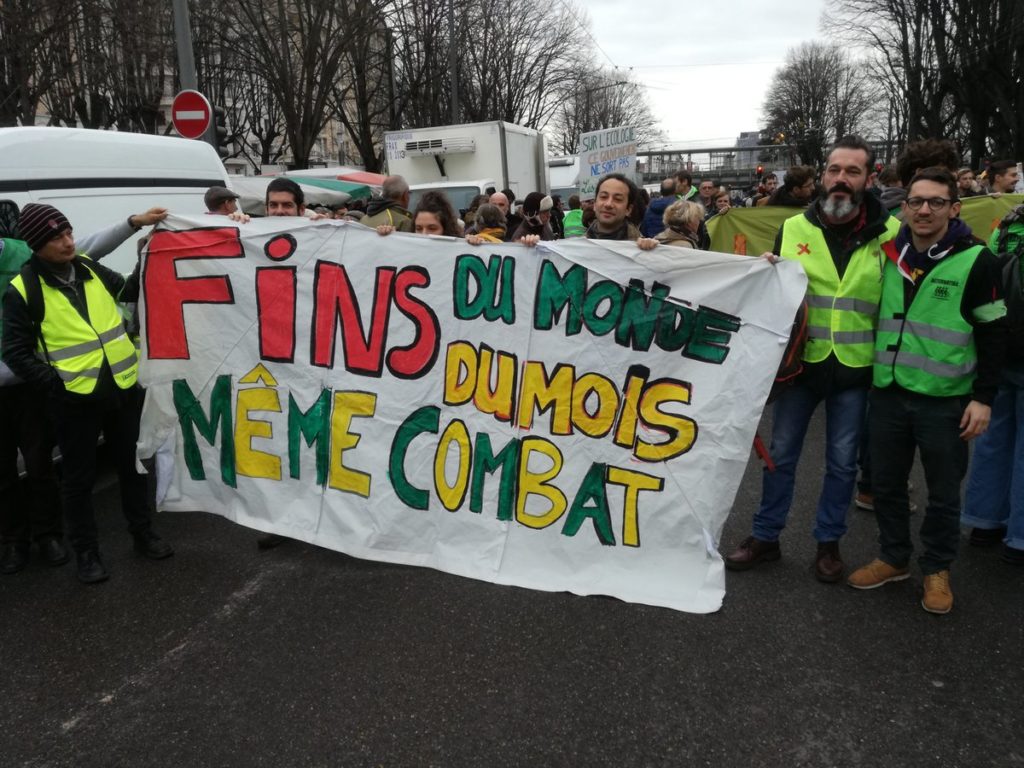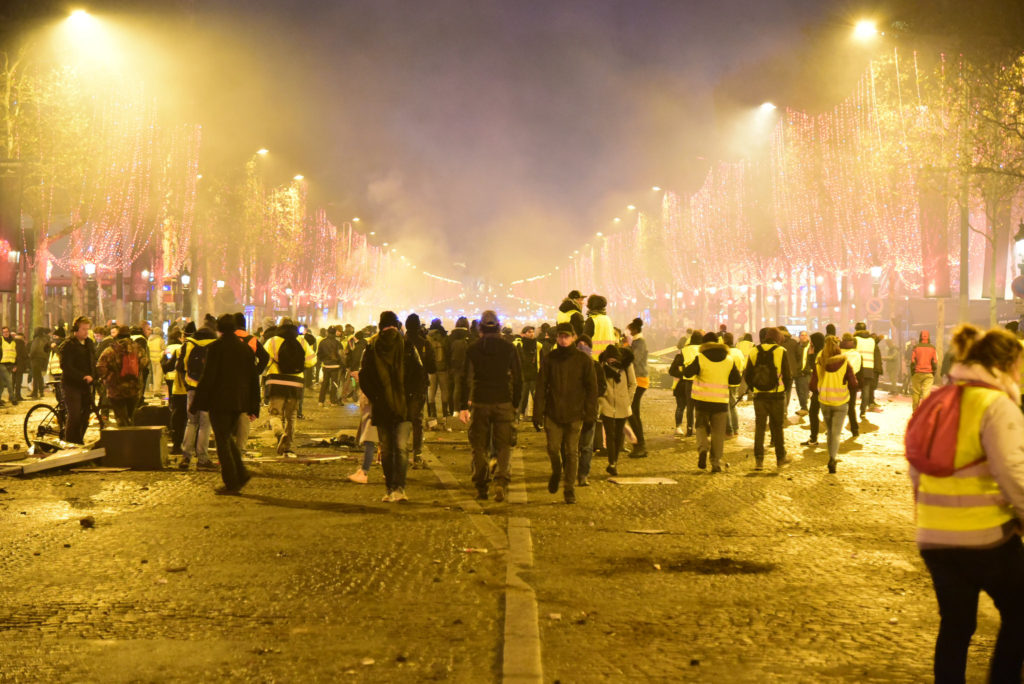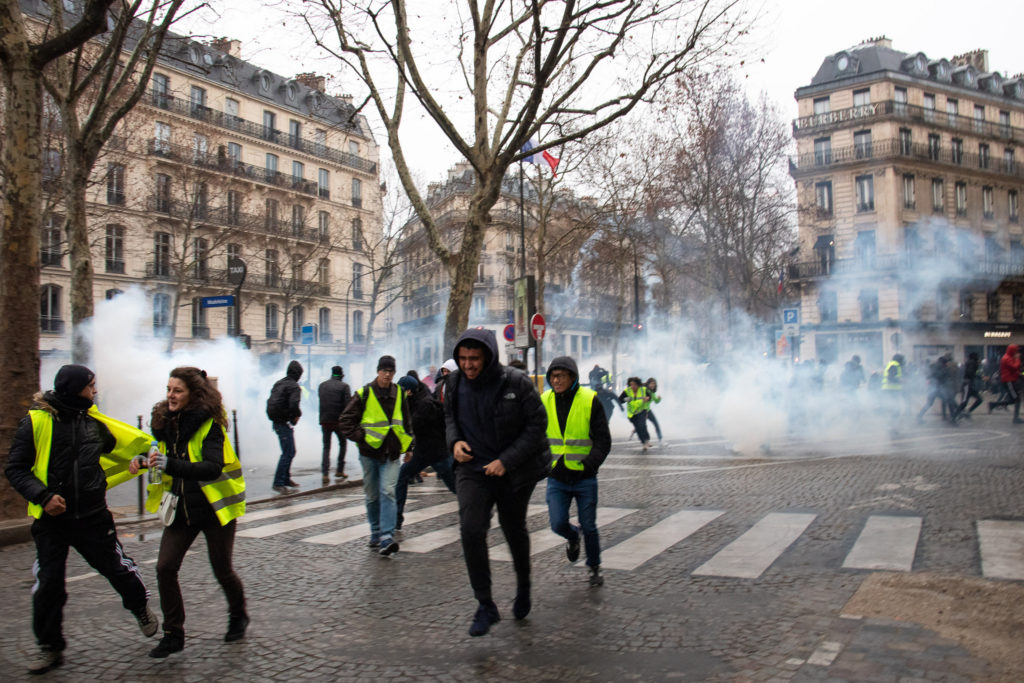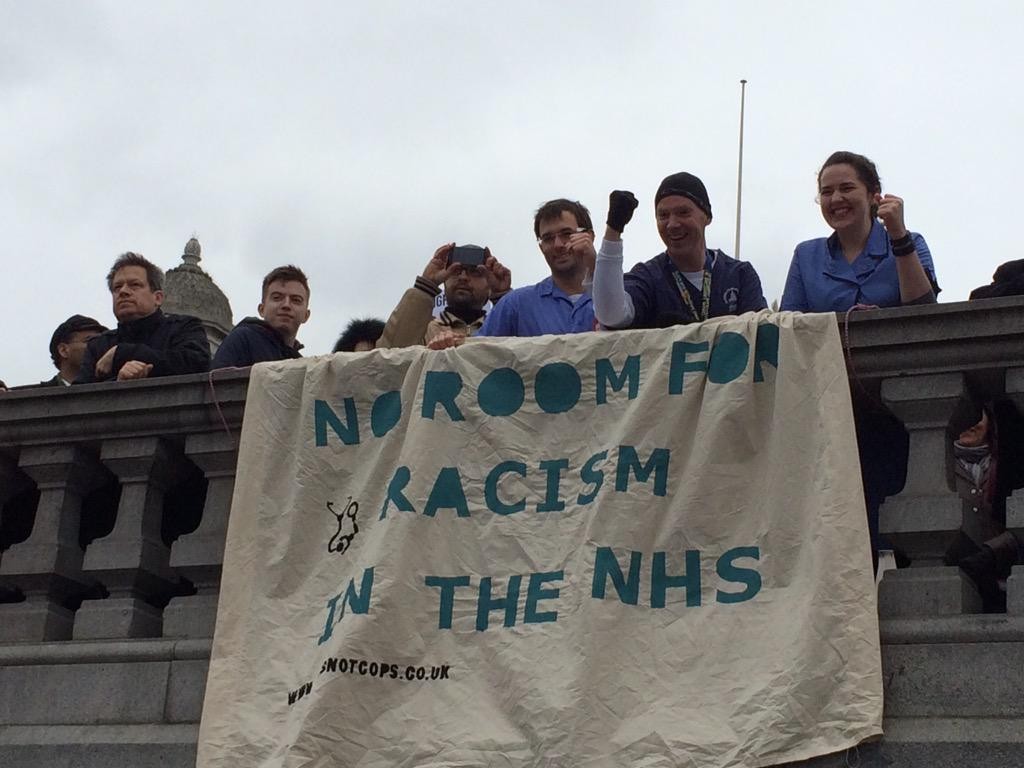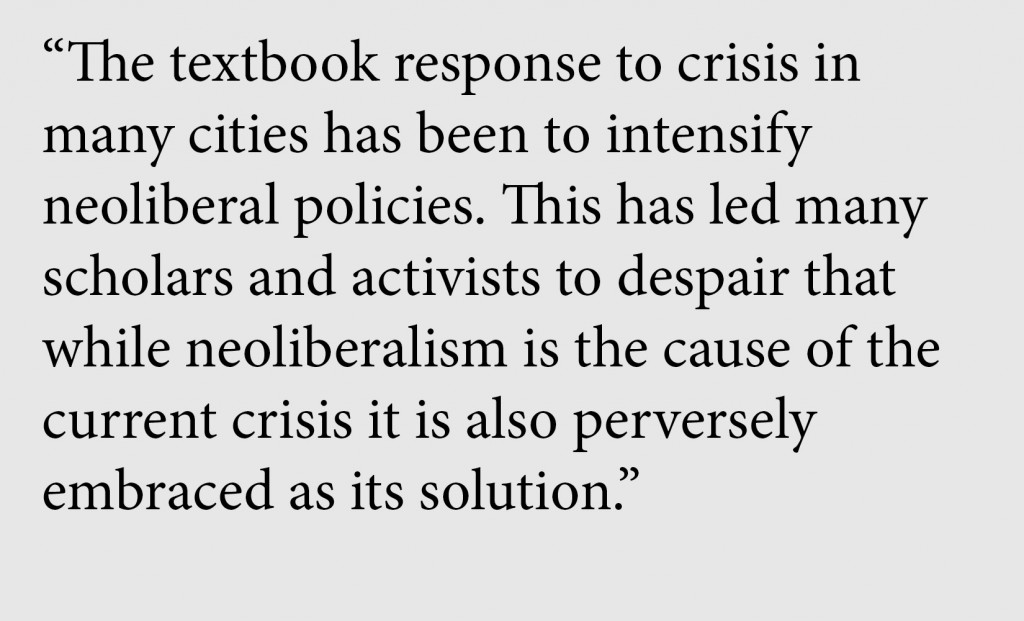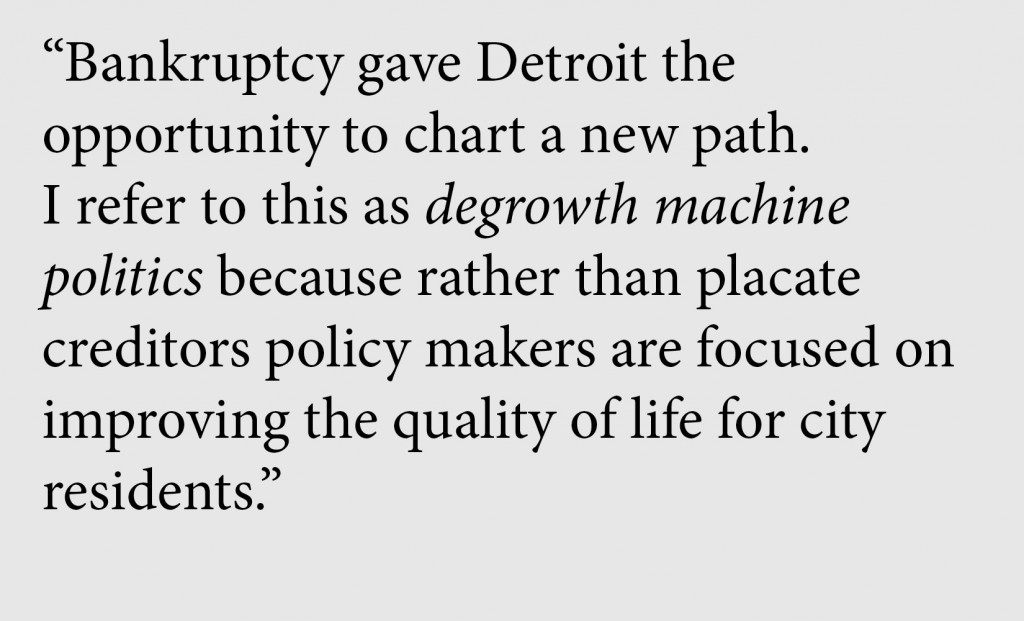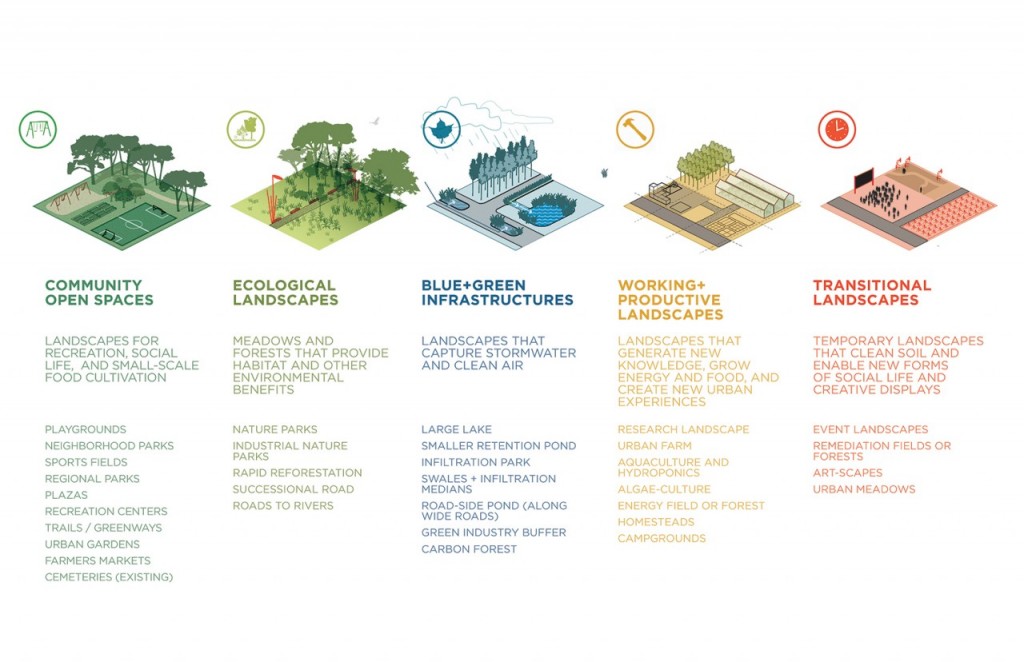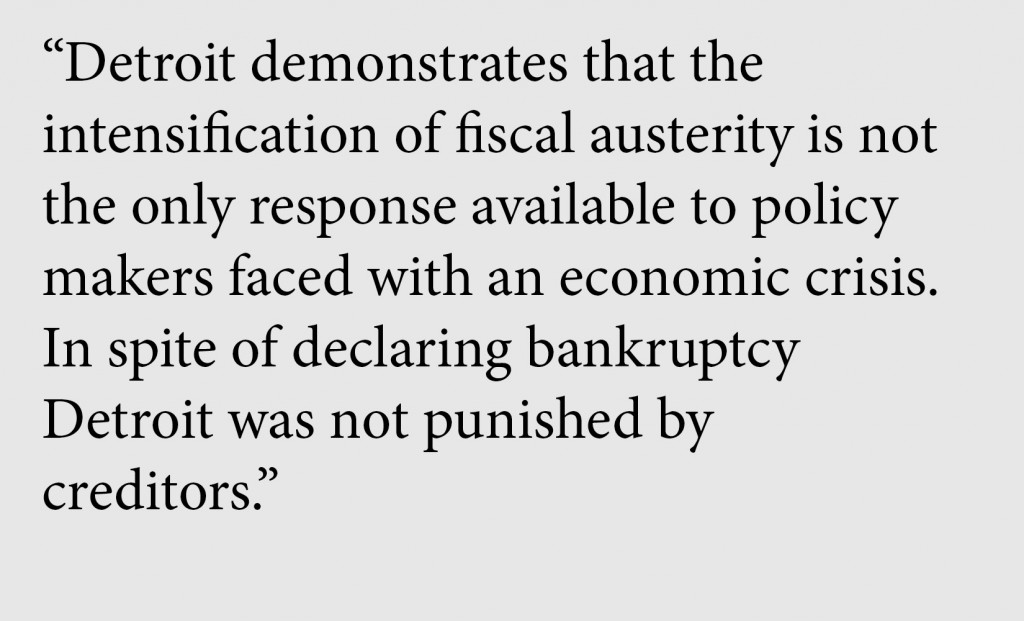
Once a month, we put together a list of stories we’ve been reading: things you might’ve missed or crucial conversations going on around the web. We focus on environmental and social justice, cities, science fiction, current events, and political theory.
We try to include articles that have been published recently but will last, that are relatively light and inspiring, and are from corners of the web that don’t always get the light of day. This will also be a space to keep you up to date with news about what’s happening at Uneven Earth.
So much has happened around the world this month, it’s hard to keep up. From massive protests around the world that toppled whole governments and won people’s demands against austerity, to Turkey’s attack on Rojava, to massive wildfires in California (again). But that’s exactly why we put together this newsletter for you! This month, we feature some excellent analysis on what links these global protests against austerity, and on-the-ground analysis of protests in each country. We offer many stories that can help inform you about what’s going on in Rojava, and how we can respond to Turkey’s invasion and the US role. After Extinction Rebellion protesters tried to block commuters in London, a debate ensued about appropriate forms of direct action, which we feature here. Now that California is up in flames again, we offer some timely analyses on the economic system and built environment that have led to its current ecological crisis. We also highlight a few analyses from inside the movement for local democracy in North America, with several reflections on the Symbiosis Congress of Municipal Movements this September. There was also a lot of analysis about the role of corporations in the climate crisis, including Silicon Valley’s funding of climate change denial.
On the whole, a thread running through this month’s events was the perceived conflict between working class demands and environmental policy. Reminding us of France’s Yellow Vest protests, in Ecuador, social movements rose up against rising gas prices; in London, Extinction Rebellion was mocked for blocking a commuter train in a working class area. In California, austerity has led to the failure of its energy companies to provide energy for millions of people, targeting the poor. What are the opportunities for environmental policies to meet people’s needs, and at the same time reconstruct the world system ecologically? How can environmentalists, especially those in the Global North, appeal to the global working class? These are some key questions going forward.
Uneven Earth updates
Shrink the military, shrink injustice | Link | The US Green New Deal must be anti-imperialist
A Green New Deal for an ecological economy | Link | Introducing a series of proposals for a truly transformative GND
Designing for a world after climate catastrophe | Link | While architects are often told they will change the world, a new book fails to imagine what a world after capitalism could look like
Degrowth should be a core part of the just transition | Link | A review of Degrowth by Giorgos Kallis
Utopia, not futurism: Why doing the impossible is the most rational thing we can do | Link | This 1978 speech by Murray Bookchin is strikingly relevant today
Top 5 articles to read
The US city preparing itself for the collapse of capitalism
New bubbles, mounting debt: preparing for the coming crisis
Post-capitalists must understand the role of migration in global capitalism. “When reading and hearing of ambitious programmes for social transformation, it is our task to consider whether or not such programmes have a sense of the ‘real’ determinants of economic development that Marx recognised: international relations of production, the international division of labour in a world market, exploitation of resources and emigration of displaced people, and at the forefront of these processes, the inner structures of middle and working classes and relations between them.”
The stories we need: pan-African social ecology
Why mental health is a political issue, by Mark Fisher. “Depression is the shadow side of entrepreneurial culture, what happens when magical voluntarism confronts limited opportunities.”
News you might’ve missed
Unprecedented’ murder charges for loggers in deaths of indigenous activists. Two timber executives and three loggers charged in shooting deaths of activists who battled illegal logging in Peruvian Amazon.
Fishery collapse ‘confirms Silent Spring pesticide prophecy’
Indonesia finds one-fifth of palm oil plantations are illegal
Maquiladoras and the exploitation of migrants on the border
Understanding extinction: humanity has destroyed half the life on Earth
Dutch development bank is financing land theft, intimidation and Landless: How the Dutch development bank marginalises farmers.
‘Consumers are not aware we are slaves inside the greenhouses’
Higher temperatures driving ‘alarming’ levels of hunger – report
Indigenous Mapuche pay high price for Argentina’s fracking dream
Cambodia’s Bunong reel from deforestation
History threatened as Turkey prepares to flood ancient city
Harvard and TIAA’s farmland grab in Brazil goes up in smoke
Worldwide uprisings against austerity
Analysis of the common threads in global uprisings:
The revolution isn’t being televised
Prole Wave: climate change, circulation struggles and the communist horizon
Hong Kong, Chile, Lebanon: Global protests are fueled by deeper discontent
Revolts against the neoliberal world order
The Interpreter: The global protest wave, explained
Why democracy is crumbling in the West
And analyses of protests in each country:
Massive protests in Chile force repeal of fare hikes and Chile doesn’t need to rebuild, it needs to be restructured. Also: Debt and neoliberalism: The global roots of Chile’s crisis
The Algerian Hirak: Young people and the non-violent revolution
Lebanon’s ‘October Revolution’ must go on!
As protests grow, Lebanese are ‘reclaiming’ public spaces
Lebanon is experiencing a social revolution
Update from Catalonia and “Be water”: Catalonia protesters learn from Hong Kong
Social and political earthquake in Ecuador and a piece by Diana Vela Almeida, contributing editor at Uneven Earth: The fight against the elimination of fossil fuel subsidies in Ecuador: Lessons for environmental and social justice
Extinction Rebellion: Critique and defense
Resources on colonialism, racism, and climate justice for Extinction Rebels
The flawed social science behind Extinction Rebellion’s change strategy
How seven thousand Quebec workers went on strike against climate change
It is not just a bunch of flowers
Don’t use XR tube action to attack the climate rebels
Extinction Rebellion has a politics problem
Revolution in Rojava
This Vermonter’s theories laid the groundwork for revolution in Rojava
PKK letter to the American people and President Trump
The Rojava revolution in peril
What the world loses if Turkey destroys the Syrian Kurds
Turkish attack on Syria endangers a remarkable democratic experiment by the Kurds
Not just ethnicity: Turkey v. Kurds and the great divide over political Islam v. the secular Left
This isn’t the first time the US has abandoned the Kurds
Reflections on the Symbiosis Congress
Grassroots democracies form North American coalition
Symbiosis: federating municipalist movements in North America for real democracy and en français: L’émergence d’un municipalisme nord-américain
Of egg and chicken: A report back from the Symbiosis Federation Congress
Report back from the Symbiosis Congress of Municipal Movements
We do it badly, or not at all: reflections on the Congress of Municipal Movements
California’s wildfires and ecological crisis in the United States
It’s the end of California as we know it. “Our whole way of life is built on a series of myths — the myth of endless space, endless fuel, endless water, endless optimism, endless outward reach and endless free parking.”
Ordinary life has vanished in fire-ravaged California
‘I’m standing right here in the middle of climate change’: How USDA is failing farmers
California’s power shutdown was primed by climate change
Corporations and climate injustice
Global climate laws threatened by rise in investor-state disputes
Revealed: the 20 firms behind a third of all carbon emissions
Fossil fuel firms’ social media fightback against climate action
Revealed: Google made large contributions to climate change deniers
In its insatiable pursuit of power, Silicon Valley is fuelling the climate crisis
How to pay for climate justice? Tax the rich, say the rich
Free Trade Agreements are fueling and shaping the oppression and injustice against women
Just think about it…
The act of giving and the chance of life on a finite planet
Has capitalism become our religion?
Being busy is eliminating the joys of shared free time
The past is still present: why colonialism deserves better coverage
Digital dystopia: how algorithms punish the poor
Humans will not ‘migrate’ to other planets, Nobel winner says
The real reason scientists downplay the risks of climate change
Mining is destroying the planet
Ancient farmers irreversibly altered Earth’s face by 3000 years ago
Climate is missing the point. We have an ecosystem emergency
How capitalism ‘solved’ the nitrogen crisis
Where we’re at: analysis
‘Racism dictates who gets dumped on’: how environmental injustice divides the world. The Guardian launched a year-long series, Our Unequal Earth, investigating environmental injustices: how ecological hazards and climate disasters have the harshest impacts on people of color, native tribes and those on low incomes.
As sea levels rise, so do ghost forests
‘Like a sunburn on your lungs’: how does the climate crisis impact health?
Against ‘consumption’ . We must shift our perspective from reducing consumption to radically reorganising society.
Professional-managerial chasm and On the origins of the professional-managerial class: An interview with Barbara Ehrenreich
Connecting trade and climate chaos
Reflections on Silvia Federici’s Caliban and the Witch, by Peter Linebaugh
Depoliticization is a deadly weapon of neoliberal fascism
New politics
A growing anti-racist network takes on the rise of far-right politics in Germany
Uganda’s eco-feminists are taking on mining and plantation industries
Saving Aru: The epic battle to save the islands that inspired the theory of evolution
Burial ground acknowledgements. Land acknowledgments as acts of institutional inclusion obscure the antagonism that follows from genocide.
Farewell to the World Social Forum? And an oldie but goodie: Mzonke Poni on the World Social Forum
Germany’s big green mood lacks radicalism
For the sake of life on Earth, we must put a limit on wealth
The other Marx. Why the Communist Manifesto is obsolete
‘One of the biggest, baddest things we did’: Black Panthers’ free breakfasts, 50 years on
What living well means for the Tseltal and Tsotsil Maya of the Chiapas
Cities and radical municipalism
Property owners can do basically whatever they want to homeless people now. In San Francisco, they’re even getting the government’s help.
A new kind of housing co-op emerges in San Francisco
Can our ‘global city’ offer transnational solidarity?
‘Van homes’ aren’t romantic – they are proof of our horrifying housing crisis
India builds homes to resist climate-linked floods
An Athenian remedy: the rise, fall and possible rebirth of democracy
The urban shepherd of Paris – photo essay
Degrowth!
Techno-fix futures will only accelerate climate chaos – don’t believe the hype
A Green New Deal between whom and for what?
Degrowth and the Green New Deal
Why degrowth is essential: A rejection of Left ecomodernists Phillips, Sharzer, Bastani, and Parenti
Climate futures: Renewable energy vs. technologies of degrowth
Sci-fi and the near future
Angela Davis, Gayatri Chakravorty Spivak and Nikita Dhawan: Planetary utopias
Reclaiming sci-fi’s lost history
We need more imagination in the face of climate catastrophe
The rise of Indigenous horror: How a fictional genre is confronting a monstrous reality
Want to receive this as a newsletter in your inbox? Subscribe here.
